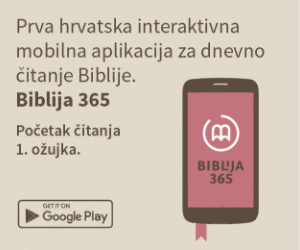autograf.hr
novinarstvo s potpisom

UKRAJINA ČIM PRIJE U EUROPSKU UNIJU!!

Sa sramom i s kajanjem priznajemo da nismo pravovremeno djelovali

Papa Franjo
(Opaska uredništva: Papa Franjo je napisao i 20. kolovoza 2018. objavio pismo ”Božjem narodu”, a u povodu ogromnog sakndala pedofilskih nasrtaja, njih najmanje preko 1000, u Pennsylaniji).
”Ako trpi jedan ud, trpe zajedno svi udovi” (1 Kor 12,26). Te riječi svetoga Pavla snažno odzvanjaju u mojem srcu dok još jednom utvrđujem trpljenje koje su pretrpjeli maloljetnici zbog spolnog zlostavljanja, zlouporabe moći i zlostavljanja savjesti koja je počinio značajan broj svećenika i Bogu posvećenih osoba, istaknuo je papa Franjo u pismu narodu Božjem, reagirajući tako na nedavni izvještaj Velikog sudskog vijeća Pennsylvanije o spolnom zlostavljanju maloljetnika od strane članova Katoličke Crkve u toj američkoj saveznoj državi, prenosi Vatican News.
Istraga, čiji su rezultati objavljeni prošloga tjedna, obuhvatila je razdoblje od 70 godina, a prema rezultatima iste više od 300 svećenika povezano je sa zlostavljanjem najmanje tisuću žrtava, no procjenjuje se da bi ukupan broj mogao biti veći.
Klerikalizam dovodi do rascjepa u tijelu Crkve, koji podupire i pomaže da se nastave činiti tolika zla koja danas osuđujemo. Reći ”ne” zlostavljanju znači reći odlučno ”ne” svim oblicima klerikalizma, poručio je Sveti Otac u pismu narodu Božjem o krizi spolnog zlostavljanja u Crkvi, pozvavši sve članove Crkve na pokajanje, pokoru, post i molitvu
Zlostavljanje je zločin koji uzrokuje duboke rane boli i nemoći, prvenstveno među žrtvama, ali i među članovima njihovih obitelji te u široj zajednici kako vjernika tako i nevjernika, upozorio je Papa.
Gledajući u prošlost, nijedno nastojanje da se traži oprost i da se popravi šteta koja je učinjena neće biti dovoljno. Gledajući prema budućnosti, potrebno je učiniti svaki mogući napor kako bi se stvorila kultura koja je u stanju spriječiti da se dogode takve situacije, ali i da se spriječi mogućnost njihova zataškavanja i nastavljanja.
Bol žrtvi i njihovih obitelji također je naša bol te je stoga hitno da još jednom potvrdimo svoju predanost kako bismo osigurali zaštitu maloljetnika i ranjivih odraslih osoba, napisao je Papa.
Sa sramom i s kajanjem, kao crkvena zajednica priznajemo da nismo bili tamo gdje smo trebali biti, da nismo pravovremeno djelovali kad smo prepoznali veličinu i težinu štete koja je učinjena tolikim ljudskim životima.
Zanemarili smo malene i napustili smo ih, istaknuo je Franjo i u tom kontekstu citirao riječi kardinala Josepha Ratzingera koje je izgovorio za vrijeme križnoga puta na Veliki petak 2005. godine: ”Koliko prljavštine ima u Crkvi, upravo među onima koji mu pripadaju po svećeništvu? Koliko oholosti i samohvale? Koliko slabo poštujemo sakrament pomirenja u kojem nas on čeka da nas podigne od našeg pada? Sve je to prisutno u njegovoj muci. Izdaja učenika, nedostojno primanje njegova tijela bi bile najteže patnje koje pogađaju Otkupiteljevo srce. A mi možemo iz dna duše samo reći: Kyrie, eleison – Gospodine, spasi nas” (usp. Mt 8,25).
Sa sramom i s kajanjem, kao crkvena zajednica priznajemo da nismo bili tamo gdje smo trebali biti, da nismo pravovremeno djelovali kad smo prepoznali veličinu i težinu štete koja je učinjena tolikim ljudskim životima. Zanemarili smo malene i napustili smo ih
Napomenuo je da su nastojanja i mjere koje je Crkva provela kako bi spriječila zlostavljanje kasno primijenjene, pozivajući potom sve članove Crkve na pokajanje, pokoru, post i molitvu. Svi su kršteni pozvani uključiti se u tu crkvenu i društvenu preobrazbu koja nam je toliko potrebna. Obraćenje je nemoguće bez aktivnog sudjelovanja svih pripadnika Božjega naroda, poručio je papa Franjo.
Doista, svaki put kad smo pokušali zamijeniti, ušutkati, ignorirati ili svesti narod Božji na malene elite, stvarali smo zajednice, projekte, teološke pristupe, duhovnosti i strukture bez korijena, bez sjećanja, bez lica, bez tijela i, konačno, bez života, upozorio je papa Franjo. Klerikalizam dovodi do rascjepa u tijelu Crkve, koji podupire i pomaže da se nastave činiti tolika zla koja danas osuđujemo. Reći ”ne” zlostavljanju znači reći odlučno ”ne” svim oblicima klerikalizma, poručio je Sveti Otac.
Papa je zatim istaknuo kako je nužno da kao Crkva budemo u stanju priznati i osuditi, s tugom i sramom, strahote koje su počinili Bogu posvećene osobe, klerici i svi oni kojima je povjereno poslanje bdjenja i brige o najranjivijima.
Molimo oprost za naše vlastite grijehe i za grijehe drugih. Svijest o grijehu pomaže nam priznati greške, zločine i rane koje su prouzročene u prošlosti te nam u sadašnjosti omogućuje biti otvorenijima i predanijima na putu prema obnovljenom obraćenju
Molimo oprost za naše vlastite grijehe i za grijehe drugih. Svijest o grijehu pomaže nam priznati greške, zločine i rane koje su prouzročene u prošlosti te nam u sadašnjosti omogućuje biti otvorenijima i predanijima na putu prema obnovljenom obraćenju, istaknuo je papa Franjo.
Pokora i molitva pomoći će nam otvoriti naše oči i naša srca patnjama drugih ljudi te nadići žeđ za moći i posjedovanjem koji su toliko često izvor tih zala, poručio je Papa.
Neka nam post i molitva otvore uši za tihu bol djece, mladih i osoba s invaliditetom. Post koji pomaže da osjećamo glad i žeđ za pravdom te nas potiče da hodimo u istini, podupirući sve pravne mjere koje bi mogle biti potrebne.
Post koji nas protresa i dovodi do toga da zajedno sa svim ljudima dobre volje, te s društvom u cjelini, u istini i ljubavi budemo predani borbi protiv svih oblika zloporabe moći, spolnog zlostavljanja i zlostavljanja savjesti. Na taj način možemo jasno očitovati svoj poziv da budemo ”znak i sredstvo najprisnijega sjedinjenja s Bogom i jedinstva cijeloga ljudskog roda” (Lumen gentium, 1), zaključio je papa Franjo.
(IKA)
UKOLIKO VAM SE TEKST DOPADA I VOLITE NEZAVISNO I KVALITETNO NOVINARSTVO, VI MOŽETE PODRŽATI AUTOGRAF PA I NAJMANJOM MOGUĆOM UPLATOM. HVALA! KLIKNITE OVDJE.
***
Ovdje možete pročitati cijelo papino pismo na engleskom jeziku:
LETTER OF HIS HOLINESS POPE FRANCIS
TO THE PEOPLE OF GOD
“If one member suffers, all suffer together with it” (1 Cor 12:26). These words of Saint Paul forcefully echo in my heart as I acknowledge once more the suffering endured by many minors due to sexual abuse, the abuse of power and the abuse of conscience perpetrated by a significant number of clerics and consecrated persons. Crimes that inflict deep wounds of pain and powerlessness, primarily among the victims, but also in their family members and in the larger community of believers and nonbelievers alike. Looking back to the past, no effort to beg pardon and to seek to repair the harm done will ever be sufficient. Looking ahead to the future, no effort must be spared to create a culture able to prevent such situations from happening, but also to prevent the possibility of their being covered up and perpetuated. The pain of the victims and their families is also our pain, and so it is urgent that we once more reaffirm our commitment to ensure the protection of minors and of vulnerable adults.
- If one member suffers…
In recent days, a report was made public which detailed the experiences of at least a thousand survivors, victims of sexual abuse, the abuse of power and of conscience at the hands of priests over a period of approximately seventy years. Even though it can be said that most of these cases belong to the past, nonetheless as time goes on we have come to know the pain of many of the victims. We have realized that these wounds never disappear and that they require us forcefully to condemn these atrocities and join forces in uprooting this culture of death; these wounds never go away. The heart-wrenching pain of these victims, which cries out to heaven, was long ignored, kept quiet or silenced. But their outcry was more powerful than all the measures meant to silence it, or sought even to resolve it by decisions that increased its gravity by falling into complicity. The Lord heard that cry and once again showed us on which side he stands. Mary’s song is not mistaken and continues quietly to echo throughout history. For the Lord remembers the promise he made to our fathers: “he has scattered the proud in their conceit; he has cast down the mighty from their thrones and lifted up the lowly; he has filled the hungry with good things, and the rich he has sent away empty” (Lk 1:51-53). We feel shame when we realize that our style of life has denied, and continues to deny, the words we recite.
With shame and repentance, we acknowledge as an ecclesial community that we were not where we should have been, that we did not act in a timely manner, realizing the magnitude and the gravity of the damage done to so many lives. We showed no care for the little ones; we abandoned them. I make my own the words of the then Cardinal Ratzinger when, during the Way of the Cross composed for Good Friday 2005, he identified with the cry of pain of so many victims and exclaimed: “How much filth there is in the Church, and even among those who, in the priesthood, ought to belong entirely to [Christ]! How much pride, how much self-complacency! Christ’s betrayal by his disciples, their unworthy reception of his body and blood, is certainly the greatest suffering endured by the Redeemer; it pierces his heart. We can only call to him from the depths of our hearts: Kyrie eleison – Lord, save us! (cf. Mt 8:25)” (Ninth Station).
- … all suffer together with it
The extent and the gravity of all that has happened requires coming to grips with this reality in a comprehensive and communal way. While it is important and necessary on every journey of conversion to acknowledge the truth of what has happened, in itself this is not enough. Today we are challenged as the People of God to take on the pain of our brothers and sisters wounded in their flesh and in their spirit. If, in the past, the response was one of omission, today we want solidarity, in the deepest and most challenging sense, to become our way of forging present and future history. And this in an environment where conflicts, tensions and above all the victims of every type of abuse can encounter an outstretched hand to protect them and rescue them from their pain (cf. Evangelii Gaudium, 228). Such solidarity demands that we in turn condemn whatever endangers the integrity of any person. A solidarity that summons us to fight all forms of corruption, especially spiritual corruption. The latter is “a comfortable and self-satisfied form of blindness. Everything then appears acceptable: deception, slander, egotism and other subtle forms of self-centeredness, for ‘even Satan disguises himself as an angel of light’ (2 Cor 11:14)” (Gaudete et Exsultate, 165). Saint Paul’s exhortation to suffer with those who suffer is the best antidote against all our attempts to repeat the words of Cain: “Am I my brother’s keeper?” (Gen 4:9).
I am conscious of the effort and work being carried out in various parts of the world to come up with the necessary means to ensure the safety and protection of the integrity of children and of vulnerable adults, as well as implementing zero tolerance and ways of making all those who perpetrate or cover up these crimes accountable. We have delayed in applying these actions and sanctions that are so necessary, yet I am confident that they will help to guarantee a greater culture of care in the present and future.
Together with those efforts, every one of the baptized should feel involved in the ecclesial and social change that we so greatly need. This change calls for a personal and communal conversion that makes us see things as the Lord does. For as Saint John Paul II liked to say: “If we have truly started out anew from the contemplation of Christ, we must learn to see him especially in the faces of those with whom he wished to be identified” (Novo Millennio Ineunte, 49). To see things as the Lord does, to be where the Lord wants us to be, to experience a conversion of heart in his presence. To do so, prayer and penance will help. I invite the entire holy faithful People of God to a penitential exercise of prayer and fasting, following the Lord’s command.[1] This can awaken our conscience and arouse our solidarity and commitment to a culture of care that says “never again” to every form of abuse.
It is impossible to think of a conversion of our activity as a Church that does not include the active participation of all the members of God’s People. Indeed, whenever we have tried to replace, or silence, or ignore, or reduce the People of God to small elites, we end up creating communities, projects, theological approaches, spiritualities and structures without roots, without memory, without faces, without bodies and ultimately, without lives.[2] This is clearly seen in a peculiar way of understanding the Church’s authority, one common in many communities where sexual abuse and the abuse of power and conscience have occurred. Such is the case with clericalism, an approach that “not only nullifies the character of Christians, but also tends to diminish and undervalue the baptismal grace that the Holy Spirit has placed in the heart of our people”.[3] Clericalism, whether fostered by priests themselves or by lay persons, leads to an excision in the ecclesial body that supports and helps to perpetuate many of the evils that we are condemning today. To say “no” to abuse is to say an emphatic “no” to all forms of clericalism.
It is always helpful to remember that “in salvation history, the Lord saved one people. We are never completely ourselves unless we belong to a people. That is why no one is saved alone, as an isolated individual. Rather, God draws us to himself, taking into account the complex fabric of interpersonal relationships present in the human community. God wanted to enter into the life and history of a people” (Gaudete et Exsultate, 6). Consequently, the only way that we have to respond to this evil that has darkened so many lives is to experience it as a task regarding all of us as the People of God. This awareness of being part of a people and a shared history will enable us to acknowledge our past sins and mistakes with a penitential openness that can allow us to be renewed from within. Without the active participation of all the Church’s members, everything being done to uproot the culture of abuse in our communities will not be successful in generating the necessary dynamics for sound and realistic change. The penitential dimension of fasting and prayer will help us as God’s People to come before the Lord and our wounded brothers and sisters as sinners imploring forgiveness and the grace of shame and conversion. In this way, we will come up with actions that can generate resources attuned to the Gospel. For “whenever we make the effort to return to the source and to recover the original freshness of the Gospel, new avenues arise, new paths of creativity open up, with different forms of expression, more eloquent signs and words with new meaning for today’s world” (Evangelii Gaudium, 11).
It is essential that we, as a Church, be able to acknowledge and condemn, with sorrow and shame, the atrocities perpetrated by consecrated persons, clerics, and all those entrusted with the mission of watching over and caring for those most vulnerable. Let us beg forgiveness for our own sins and the sins of others. An awareness of sin helps us to acknowledge the errors, the crimes and the wounds caused in the past and allows us, in the present, to be more open and committed along a journey of renewed conversion.
Likewise, penance and prayer will help us to open our eyes and our hearts to other people’s sufferings and to overcome the thirst for power and possessions that are so often the root of those evils. May fasting and prayer open our ears to the hushed pain felt by children, young people and the disabled. A fasting that can make us hunger and thirst for justice and impel us to walk in the truth, supporting all the judicial measures that may be necessary. A fasting that shakes us up and leads us to be committed in truth and charity with all men and women of good will, and with society in general, to combatting all forms of the abuse of power, sexual abuse and the abuse of conscience.
In this way, we can show clearly our calling to be “a sign and instrument of communion with God and of the unity of the entire human race” (Lumen Gentium, 1).
“If one member suffers, all suffer together with it”, said Saint Paul. By an attitude of prayer and penance, we will become attuned as individuals and as a community to this exhortation, so that we may grow in the gift of compassion, in justice, prevention and reparation. Mary chose to stand at the foot of her Son’s cross. She did so unhesitatingly, standing firmly by Jesus’ side. In this way, she reveals the way she lived her entire life. When we experience the desolation caused by these ecclesial wounds, we will do well, with Mary, “to insist more upon prayer”, seeking to grow all the more in love and fidelity to the Church (SAINT IGNATIUS OF LOYOLA, Spiritual Exercises, 319). She, the first of the disciples, teaches all of us as disciples how we are to halt before the sufferings of the innocent, without excuses or cowardice. To look to Mary is to discover the model of a true follower of Christ.
May the Holy Spirit grant us the grace of conversion and the interior anointing needed to express before these crimes of abuse our compunction and our resolve courageously to combat them.
Vatican City, 20 August 2018
FRANCIS
[1] “But this kind [of demon] does not come out except by prayer and fasting” (Mt 17:21).
[2] Cf. Letter to the Pilgrim People of God in Chile (31 May 2018).
[3] Letter to Cardinal Marc Ouellet, President of the Pontifical Commission for Latin America (19 March 2016).
(Prenosimo s portala Svete Stolice)
• Poruka za 110. Svjetski dan selilaca i izbjeglica
• Poruka za kraj Ramazana: Djeci treba dom, a ne grob
• U mislima su mi ponajprije žrtve mnogih sukoba
• Papa Bartolomeju: Neka kršćani mole da utihne oružje
• Budimo budni i na oprezu protiv klerikalizma
• Rane žrtava zlostavljanja nikada ne zastarijevaju
• Koliko se veliko siromaštvo rađa iz bezumlja rata!
• Apel predsjedniku Putinu i predsjedniku Zelenskom
• Nemojmo odustati od darivanja samih sebe
• Sveto Trojstvo je Ljubav koja je sva u službi svijeta
> Svi tekstovi ovog autora
Oznake: Abrahamova djeca, Crkva, klerikalizam, Lumen gentium, papa Franjo, Vatican News, zlostavljanje
DNEVNI TWEEt DRAGE PILSELA
Ekumena – Laboratorij za dijalog
ARHIVA – VRIJEME SUODGOVORNOSTI
vrijeme i suodgovornosti

Donacije
Cigle
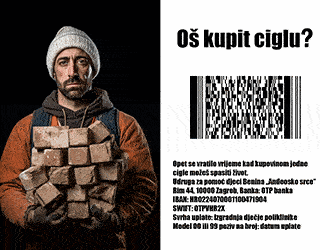
ekumena

javni servis

prometej

argentinski roman

povratak adolfa pilsela
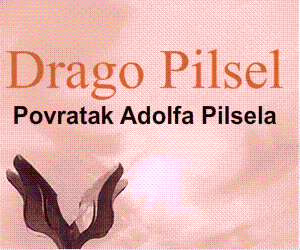
vbz drago

fraktura 1

fraktura 2

fraktura 3
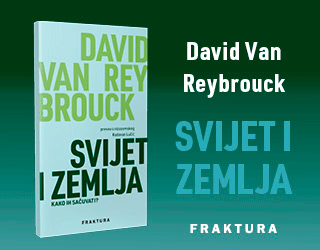
fraktura 4
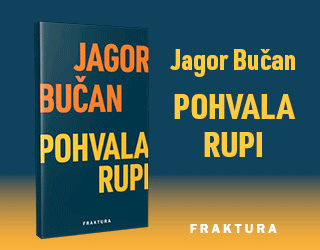
fraktura 5

fraktura 6

superknjizara

vbz 1

vbz 2

vbz 3

vbz 4
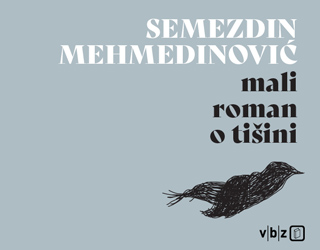
vbz 5

vbz 6
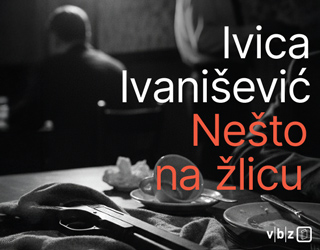
vbz 7

vbz 8

ljevak 1

ljevak 2
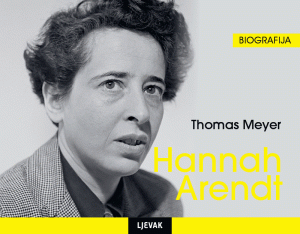
ljevak 3

ljevak 4
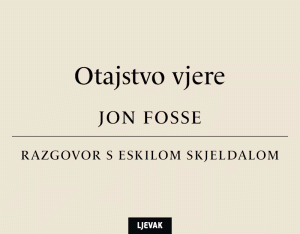
ljevak 5

ljevak 6
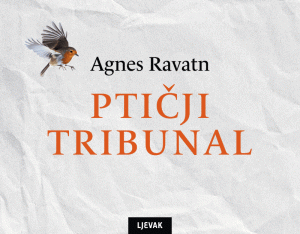
Lijevak 7
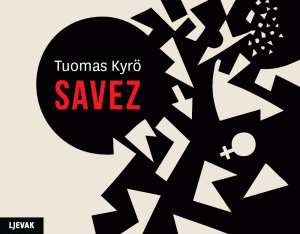
oceanmore 1

oceanmore 2
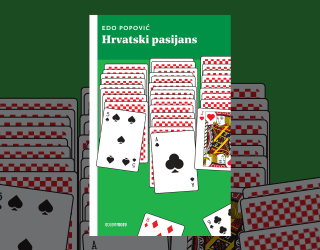
petrineknjige 1
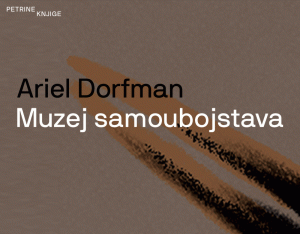
petrineknjige 2

petrineknjige 3
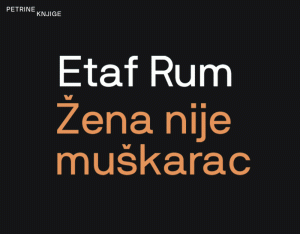
petrineknjige 4

srednja europa 1
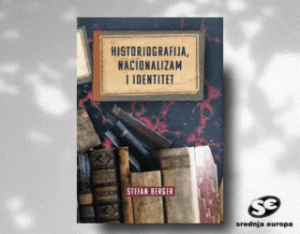
srednja europa 2
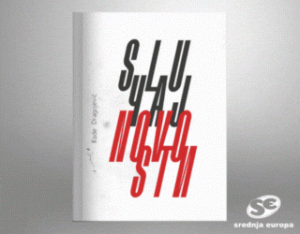
srednja europa 3
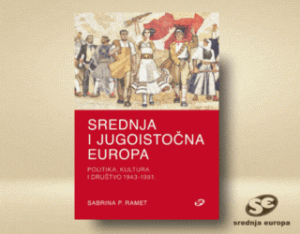
srednja europa 4
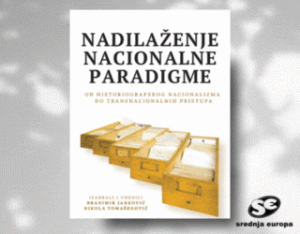
srednja europa 5
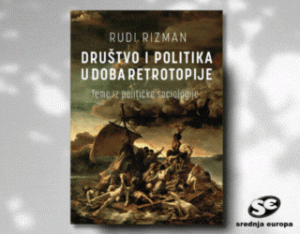
planetopija 1

planetopija 2

KS 1A

KS 1B
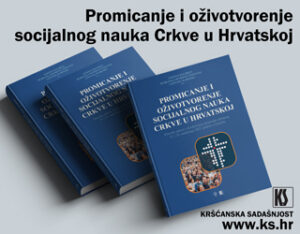
ks 1

ks 2
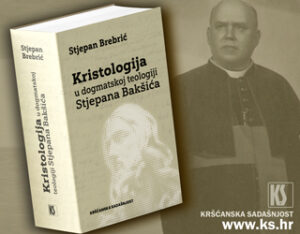
meandar 1
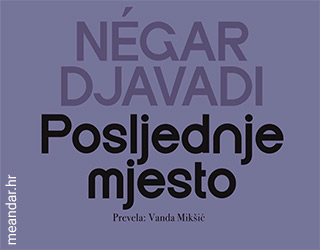
meandar 2

meandar 3
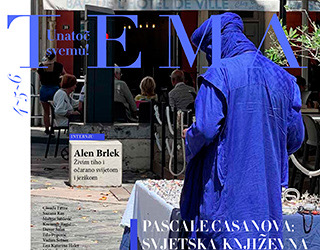
biblija
